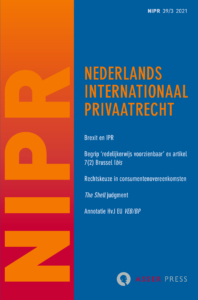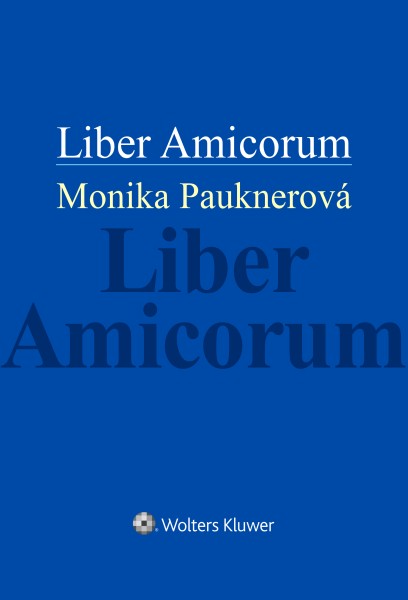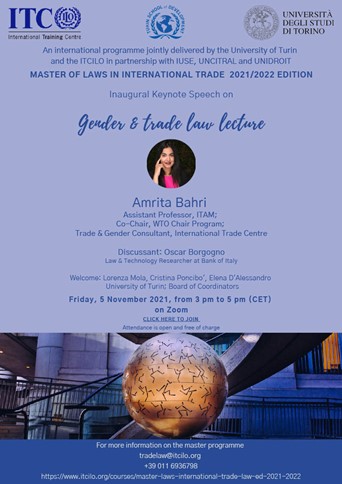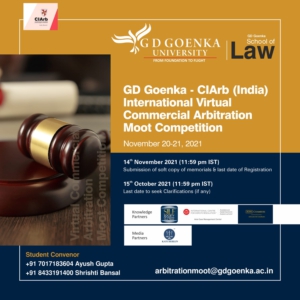Praxis des Internationalen Privat- und Verfahrensrechts (IPRax) 6/2021: Abstracts
The latest issue of the „Praxis des Internationalen Privat- und Verfahrensrechts (IPRax)“ features the following articles:
(These abstracts can also be found at the IPRax-website under the following link: https://www.iprax.de/en/contents/)
T. Maxian Rusche: Available actions in the German courts against the abuse of intra-EU investor-State arbitration proceedings
The Court of Justice of the European Union ruled in Achmea that intra-EU investment arbitration violates fundamental rules of EU law. However, arbitration tribunals have revolted against that judgment, and consider in constant manner that they remain competent to decide cases brought by EU investors against EU Member States. German law offers an interesting option for States to defend themselves against new intra-EU investment arbitration cases. Based on § 1032 paragraph 2 Civil Procedure Code, the German judge can decide on the validity of the arbitration agreement if a case is brought prior to the constitution of the arbitration tribunal. Recently, Croatia has successfully used that possibility in an UNCITRAL arbitration initiated by an Austrian investor on the basis of the Croatia-Austria BIT. The Netherlands have recently brought two cases in ICSID arbitrations based on the Energy Charter Treaty. If the investor refuses to comply with a finding that there is no valid arbitration agreement, Member States can seek an anti-arbitration injunction.
F.M. Wilke: German Conflict of Laws Rules for Electronic Securities
In June 2021, Germany introduced the option of electronic securities, doing away with the traditional principle that securities must be incorporated in a piece of paper. The blockchain-ready Electronic Securities Act (Gesetz über elektronische Wertpapiere: eWpG) comes with its own conflict of laws provision. This paper addresses the subject matter, connecting factors, and questions of the applicable law of said rule. One main challenge consists in reconciling the new rule with an existing (much-discussed, yet still quite opaque) conflict of laws provision in the Securities Account Act. While the connecting factor of state supervision of an electronic securities register may appear relatively straightforward, it is shown that it can actually lead to gaps or an accumulation of applicable laws. While the Electronic Securities Act contains a solution for the former issue, the latter proves more complicated. Finally, it is not obvious whether the new rule allows a renvoi. The author tentatively suggests a positive answer in this regard.
M. Pika: The Choice of Law for Arbitration Agreements
Ever since 2009, when the German choice-of-law provisions for contracts were removed and the Rome I Regulation with its carve-out for arbitration agreements entered into force, the choice of law for arbitration agreements has been debated in Germany. On 26 November 2020, the German Federal Court of Justice addressed this matter, albeit inconclusively. The court held that the enforcement provision Article V (1) lit. a New York Convention applies already before or during arbitral proceedings. Pursuant to this provision, the arbitration agreement is governed by the law chosen by the parties and, subsidiarily, the law of the seat. This leads to an internationally well-known follow-up problem: whether the parties, when choosing the law applicable to the main contract, have impliedly chosen the law applicable to the arbitration agreement. This matter was left open by the Federal Court of Justice.
F. Rieländer: Joinder of proceedings and international jurisdiction over consumer contracts: A complex interplay between the Brussels Regime and domestic law of civil procedure
Whether the “international nature” of a contractual relationship between two parties to a dispute established in the same Member State might possibly stem from a separate contract between the claimant and a foreign party, for the purposes of determining jurisdiction according to the Brussels Ibis Regulation, continues to be a contentious issue ever since the ECJ ruling on the Maletic case (C-478/12). Particularly illuminating are two recent decisions given by the Bayerisches Oberstes Landesgericht. Whilst the Court, understandably enough, did not wish to deviate from the case law of the ECJ, it probably unnecessarily extended the purview of the dubious Maletic judgment in Case 1 AR 31/20. With regard to division of labour on part of the defendants there is no need for an overly expansive interpretation of the term “other contracting party” within the meaning of Article 18(1) Brussels Ibis Regulation because the “international element” of a contractual relationship between a consumer and a trader established in the Member State of the consumer’s domicile simply derives from the subject-matter of the proceedings where the contractual obligation of the trader is to be performed in another State. Taken in conjunction with its decision in Case 1 AR 56/20, the Court seemingly favours a subject-matter-related test of “international character”, while the Court at the same time, in Case 1 AR 31/20, respectfully adopts the authoritative interpretation of the ECJ in Maletic. Simply for the sake of clarity, it should be mentioned that even if the legal relationship between a consumer and one of the defendants, considered alone, bears no international character, a subsequent joinder of proceedings at the legal venue of the consumer’s place of residence is nonetheless possible pursuant to § 36(1) No 3 ZPO (German Code of Civil Procedure) if jurisdiction is established in relation to at least one of the defendants according to Article 18(1) Brussels Ibis Regulation and the general place of jurisdiction of all other defendants is situated in the Federal Republic of Germany
M. Andrae: For the application of Art. 13 (3) No. 2 EGBGB, taking into account the spirit and purpose of the law against child marriage
Art. 13 (3) No. 2 EGBGB (Introductory Law to the Civil Code) stipulates that a marriage can be annulled under German law if the person engaged to be married was 16 but not 18 years of age at the time of the marriage. The legal norm relates to a marriage where foreign law governs the ability to marry and where the marriage has been effectively concluded under this law. The rule has rightly been heavily criticized in the scientific literature. As long as the legal norm is applicable law, it should be interpreted in a restrictive manner, as far as the wording and the purpose of the law against child marriage allow. The article focuses on the intertemporal problem. In addition, it is discussed whether the legal norm is to be applied universally or only if there is a sufficient domestic reference. The article follows the restrictive interpretation of the BGH of Section 1314 (1) No. 1 BGB, insofar as it concerns marriages that are covered by Art. 13 (3) No. 2 EGBGB. According to this, the court can reject the annulment of the marriage in individual cases, if all aspects of the protection of minors speak against it.
D. Looschelders: Cross-border enforcement of agreements on the Islamic dower (mahr) and recognition of family court rulings in German-Iranian legal relations
The cross-border enforcement of agreements on the Islamic dower (mahr) can present significant difficulties in German-Iranian legal relations. These difficulties are compounded by the fact that mutual recognition of family court rulings is not readily guaranteed. Against this background, the decision of the Higher Regional Court of Celle deals with the recognition of an Iranian family court ruling concerning a claim for recovery of the Islamic dower. The Higher Regional Court of Hamburg on the other hand discusses in its decision whether a husband can sue his wife for participation in a divorce under Iranian religious law as contained in their divorce settlement agreement on the occasion of a divorce by a German court. The recognition of a judicial divorce is not per se excluded in Iran; however, the husband required his wife’s participation due to Iranian religious laws in order for her waiver on the Islamic dower to gain legal effectiveness under Iranian law. The court rejected the claim as it drew upon the state divorce monopoly contained in Art. 17 (3) EGBGB (Introductory Act to the German Civil Code) and § 1564 BGB (German Civil Code). Consequently, despite the waiver declared in Germany, the respondent is free to assert her claim for recovery of the Islamic dower in Iran.
M. Andrae: HMP: Maintenance Obligations between ex-spouses if the parties lived together as an unmarried couple for a long time before the marriage
The main focus is on the relationship between Art. 3 (general rule on applicable law) and Art. 5. (special rule with respect to spouses and ex-spouses) of the 2007 Hague Maintenance Protocol. The following legal issues are discussed: Are maintenance obligations arising out of unmarried relationships included within scope of the HMP? Is Art. 5 HMP to be interpreted as an exception in relation to Art. 3 HMP? How is the phrase “closer connection with the marriage” in the Art. 5 HMP to be interpreted? Should a period of time in an unmarried relationship before a marriage be taken into account in relation to Art. 5 HUP? What is the significance of the last common habitual residence during the marriage with regard to the escape clause if the parties previously lived in different countries for professional reasons?
C. von Bary: Recognition of a Foreign Adoption of an Adult
In its decision on the recognition of a foreign adoption of an adult, the German Federal Court of Justice addresses questions concerning procedure and public policy. The special provisions for proceedings in adoption matters do not apply in recognition proceedings, which has consequences for the remedies available. Considering the effect on the ground for refusal of recognition due to a lack of participation (§ 109(1) No. 2 FamFG), courts only have to hear the other children of the adopting person rather than them being a party to the proceedings. The Court also sets strict criteria for a violation of public policy in the case of a foreign adoption of an adult. It only amounts to a violation of public policy when the parties deliberately seek to evade the prerequisites under German law by going abroad, which seems to imply that there are no fundamental principles specific to the adoption of an adult.
H. Roth: Enforcement issues due to a decision repealed in the State of origin
The decision of the German Federal Court of Justice was handed down pursuant to intertemporal civil procedure law and also to the Brussels I Regulation, which requires a declaration of enforceability for enforcement in another Member State. The court rightly upheld its settled case-law that a decision subsequently repealed in the State of origin cannot be authorized for enforcement. The ruling of the German Federal Court of Justice has significance for future cases examined on the basis of the new Brussels Ia Regulation, which states that enforcement can occur in another Member State without a declaration of enforceability. If the decision in the State of origin is subsequently repealed, a debtor in the executing State can choose for this fact to be taken into account either in the refusal of enforcement proceedings pursuant to Articles 46 et seq. Brussels Ia Regulation or in the execution itself by the competent executing body pursuant to Section 1116 of the German Code of Civil Procedure (ZPO).
O. Remien: Étroitement liée? – On jurisdiction for a damages action against an arbitrator after setting-aside of the award and artt. 1 (2) (d) and 7 (1) (b) Brussels Ibis-Regulation
In Saad Buzwair Automotive Co, Cour d’appel and Tribunal Judiciaire de Paris were of opposite opinions on the question which courts are competent to decide on a damages action against an arbitrator after setting-aside of the award. In an ICC arbitration with seat in Paris but hearings and domicile of the three arbitrators in Germany, the Qatari claimant had been unsuccessful against the Emirati respondent, but later the award had been set aside by the Cour d’appel de Paris and this setting-aside been confirmed by the Cour de cassation. The Qatari company sued one of the German arbitrators for damages before the Paris courts. The first instance Tribunal Judiciaire found that the arbitration exception of art. 1 (2) (d) Brussels Ibis did not apply to the action for damages based on an alleged breach of the arbitrator’s contract; further, it held that the place of performance under art. 7 (1) (b) Brussels Ibis was in Germany where the arbitrators lived and had acted. The Cour d’appel disagreed, the leitmotiv being that the damages action is closely connected (étroitement liée) to the arbitration. It found that the arbitration exception applied, so that the Brussels Ibis Regulation was inapplicable, and that under the autonomous French place of performance rule the place of performance was in Paris. After recalling the importance of the arbitrator’s contract this note distinguishes the damages action against the arbitrator from the arbitration between the original parties, points out that the courts of the seat of the arbitration are not necessarily competent for damages actions against an arbitrator and stresses the negative consequence of the ruling of the Cour d’appel – an eventual judgment awarding damages would not fall under the Brussels Ibis Regulation and thus not necessarily be enforceable in other Member States! Further, it is unclear whether the arbitration exception would also apply to an action for payment of the arbitrator’s fees. Finally, the situation where an arbitral award is not set-aside, perhaps even cannot be set aside, by the courts of the seat but where its enforcement is denied in another state is taken account of and can in case of a damages action lead to the competence of a court other than that of the seat of the arbitration. As to the place of performance, the two courts apply similar autonomous French respectively EU-rules, but with diverging results: the Cour d’appel stressing again the close connection, the Tribunal Judiciaire applying a more concrete fact-based approach. In sum, there are good arguments in favour of the decision of the Tribunal Judiciaire and a judgment of the ECJ on these questions would be welcome.





